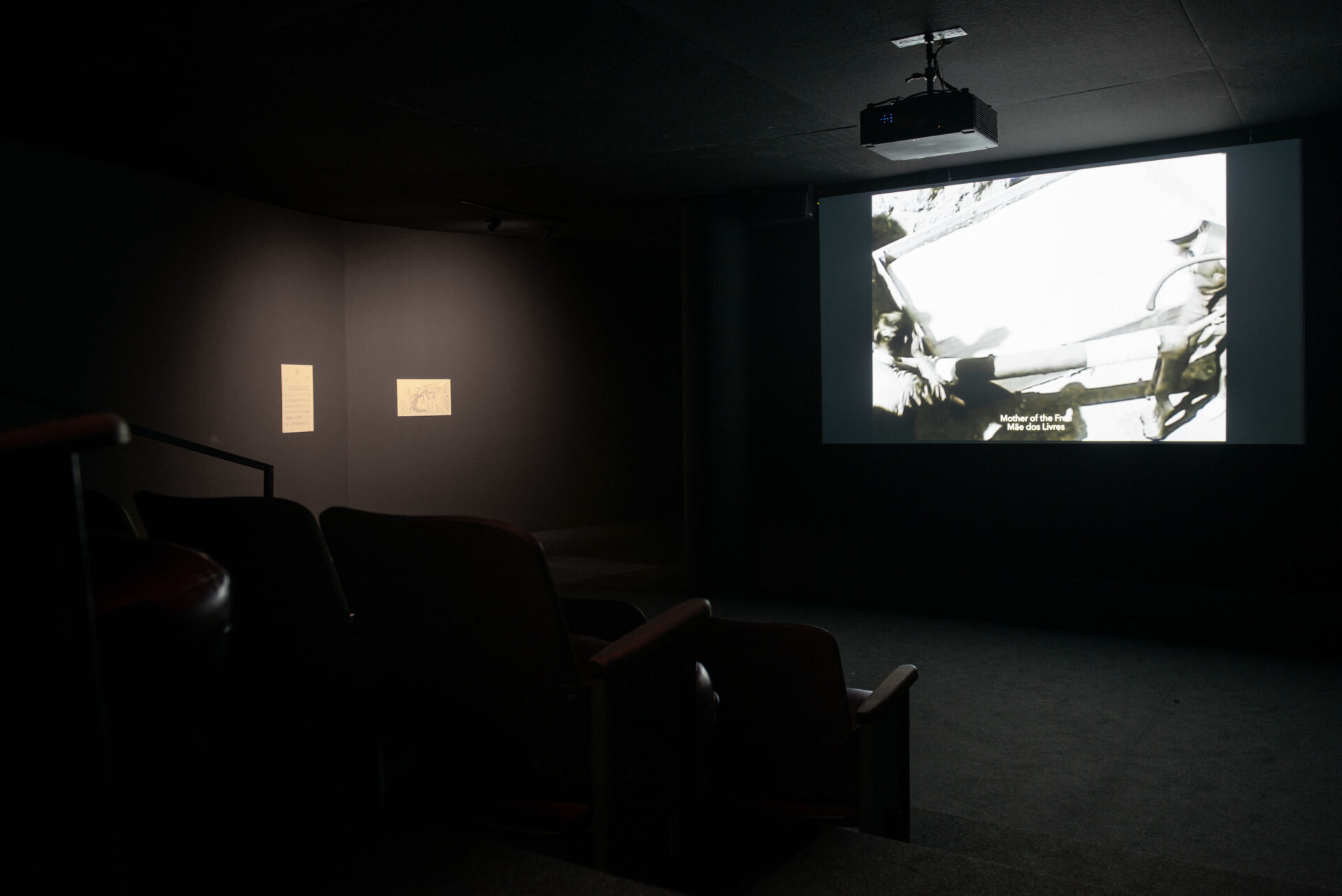
Philip Rizk
Terrible Sounds (2022) is made up of a triptych video installed as a two- channel projection accompanied by a series of prints.
Three conceptual elements inform the work.
The first takes us to 1922, the year the British alleged to give Egypt its independence. It was the same year that archaeologist Howard Carter (1874–-1939) discovered the tomb of Tutankhamun, which would spark a worldwide movement of Egyptomania. Following disagreements with local elites the British expedition is forced to abandon the site. The tomb, like all Egyptian antiquities, had served the British’s claim to greatness. Following the tomb’s closing, it was officially reopened in 1924 at the behest of King Fuad I as a symbol of the African state’s glorious past and its claim to national independence.
The second conceptual element is music, both as a liberating power, as well as its ties to colonialism and neocolonialism. In 1932, as part of a general move by elites anxious to earn recognition of Egypt as a participant in Western modernity, the Conference of Arab Music was organized with the intention of Westernizing it. In an accompanying text for Terrible Sounds Rizk asks some key questions, “How would I move to the sounds of colonialism? How would I move to the sounds of neo-colonialism? But most important of all, how would I move to the sounds of neither?” The answer to the last question is suggested by the story of Hartmut Geerken, a German musician who, fascinated by Afro-American composer Sun Ra’s Afrofuturism, settled in Cairo in 1967 where he co-founded Egypt’s first Free Jazz ensemble. The second projection in the exhibition features a musical recording from 2021 in which Geerken along with Egyptian and Lebanese musicians counter the conference’s agenda of Westernizing Arab music into a European form, with a session of free musical improvisation.
The third conceptual element, which appears in the two films as well as in the exhibited prints, are allusions to peasant revolts that led the British to announce Egypt’s nominal independence in 1922.
In Terrible Sounds one can recognize some typical features of Rizk’s work, which masterfully uses archival materials, breaking chronological and spatial linearity, reorganizing a hegemonic narrative from a decolonial perspective.
marco baravalle
Philip Rizk (1982. Lives between Cairo, Egypt and Berlin, Germany) is a film-maker and writer. In his films he experiments with methods of “making the habitual strange.” In Out on the Street (2015) he uses performance, in his found footage films Mapping Lessons (2020) and Terrible Sounds (2022) he experiments with the technique of montage. In a world that is breaking down, a question that runs throughout Rizk’s projects is, “how do we prepare ourselves for what is to come?”. Rizk is a member of the Mosireen video collective behind the archive 858.ma. His writings include the essay “2011 is not 1968: a letter to an onlooker,” and the co-authored book with Jasmina Metwaly On Trials: A Manual on the Theatre of Law (2021). He irregularly teaches in classrooms and workshops. He is a 2022/23 fellow of The Berlin Artistic Research Grant Programme.

 Português
Português